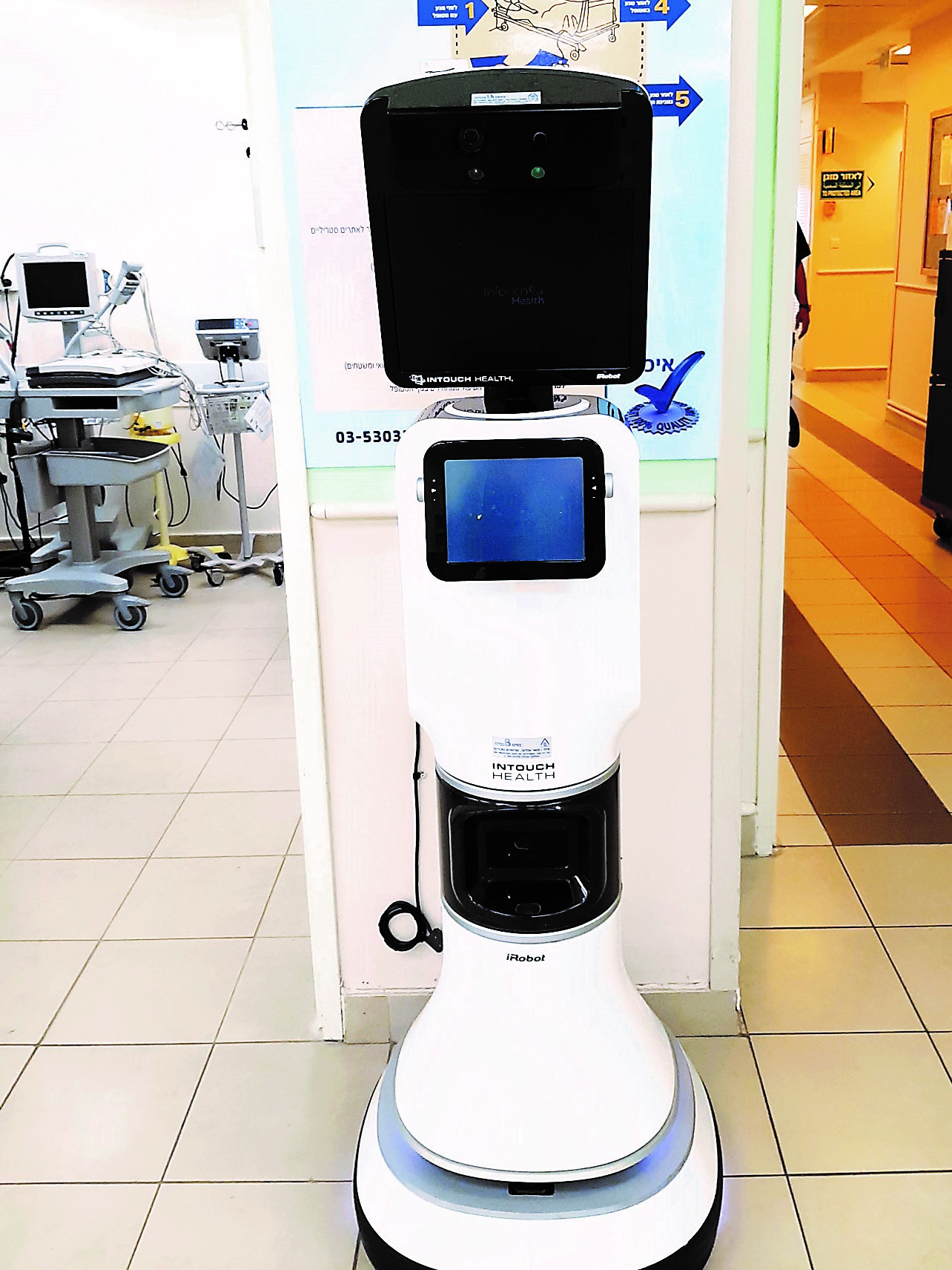
Featured Item

Israeli technology on frontline in battle against coronavirus
JORDAN MOSHE
Across the country, scientists are working around the clock to develop innovations that can address the situation in different ways. From preventative measures to actual treatment, various ideas are being devised and tested to turn things around, and bring hope to more than 73 000 infected people.
Because there is no vaccine or treatment for Covid-19, personal protective equipment remains a vital barrier against transmission. Disposable facemasks block only some of the dangerous bacteria and could potentially house the bacteria pathogen after prolonged exposure.
For this reason, a reusable mask with anti-pathogenic properties could prove a potent preventative measure. On 28 January, ISRAEL21c reported that two Israeli companies, Sonovia and Argaman Technologies, had devoted themselves to sharing their novel antimicrobial technologies with China and the broader global community.
The nanotechnology process they have developed to impregnate textiles with antifungal and antibacterial chemicals could provide a critical defence against the spread of the disease.
Earlier this week, Sonovia reportedly sent samples of its antimicrobial polyester-cotton fabric to be tested in China for effectiveness against the virus, and results are expected to be shared in 10 days. Sonovia cofounder, Shay Herchcovici, told Israeli media that this textile could not only be made into washable facemasks, but also used to fashion other protective garments and hospital linen.
Dealing with diagnosis, Israeli start-up MeMed aims to help officials detect people carrying the virus before symptoms appear. Because the virus reportedly becomes infectious before the display of any symptoms, a system of early diagnosis could prove helpful for doctors devoting a great deal of time and resources to basic diagnosis.
ImmunoXpert, the company’s first product, studies a patient’s blood sample using algorithms and sensors to determine whether the patient is fighting bacteria or a virus anywhere in the body. The technology is already being used in the European Union, Switzerland, and Israel to distinguish within two hours whether an illness is viral or bacterial.
According to MeMed Chief Executive Eran Eden, the innovation could have applications for Covid-19. Israeli media reports that Eden told the OurCrowd Global Investor Summit last week in Jerusalem that the company was working with collaborators around the globe to find out whether certain technologies derived from its invention could detect infectious patients in the pre-symptomatic stage.
Also addressing the issue of diagnosis is Dr Amos Danielli of Bar-Ilan University, who, together with his team, has developed technology which can drastically reduce the time needed to analyse saliva samples for signs of the virus. According to the Jerusalem Post, the solution was first discovered in 2007 to address cattle diseases, and the same technology has been adapted for multiple viruses.
“We collaborate with several laboratories in China and Vietnam, and they were telling me that the time they needed to analyse the saliva samples was severely limiting the amount of people they could test every day. I though this could help,” Danielli told the Jerusalem Post.
Diagnosing coronavirus takes about one hour using existing methods. Danielli’s solution combines optics and magnetic particles, enabling the rapid testing of 100 samples of patients potentially infected with the virus, reducing diagnostic time to about 15 minutes. Earlier versions of the technology are being used at the virology laboratory at Sheba Medical Center in Tel Hashomer, but further testing is needed to determine if it can be used effectively against the new virus.
Another innovation is being piloted at Sheba, this one addressing the needs of those already infected. A telemedicine app, Sheba’s “Datos Health-In”, enables patients to remain in isolation but also in the comfort of their homes. Should an epidemic occur and isolation rooms become overburdened, the app enables patients who aren’t severely ill to enter vital signs and other information, and submit them directly to their doctor. Patients can also make contact with their physicians at any time of the day or night.
The app was launched on 9 February, and has already been used by Israelis suspected of carrying the virus. “This is one instance where telemedicine protects staff as well as other patients – by minimising direct contact with those infected with coronavirus,” Galia Barkai, the head of telemedicine services at Sheba, told the media.
Another high-tech solution for those potentially infected is a robot which can enter the patient’s room and be controlled remotely by medical staff. The robots, designed by California-based virtual healthcare company Intouch Health, are already in use in other departments at the centre. “This technology is the perfect solution to provide care for inpatients infected with coronavirus, while protecting staff from contagion,” said Barkai.
Finally, there are other companies who have devoted themselves to treating the virus. CoughSync, a device developed by a Jerusalem paediatric and adolescent rehabilitation facility, could help treat victims suffering from pneumonia, and also reduce the danger of contagion. Innovated by Alyn Hospital, the product was invented by Dr Eliezer Be’eri, and is designed for people on ventilators, simulating a normal cough which clears phlegm from a patient’s airways.
Aside from being less invasive, the device can also be attached to the ventilator, eliminating the need for medical staff to remove the ventilator to give treatment and potentially exposing them to bacteria, making it eminently suitable for preventing the spread of coronavirus.
There are even those working on a cure itself. Immunotherapy biotech company, Vaxil Bio, announced last week that it believes it has successfully identified a Covid-19 vaccine candidate. The company, which specialises in cancer and infectious diseases, has harnessed its unique and patent protected signal peptide technology, which it believes can be effective as a prophylactic vaccine against the virus, and might also demonstrate therapeutic value in the future.




